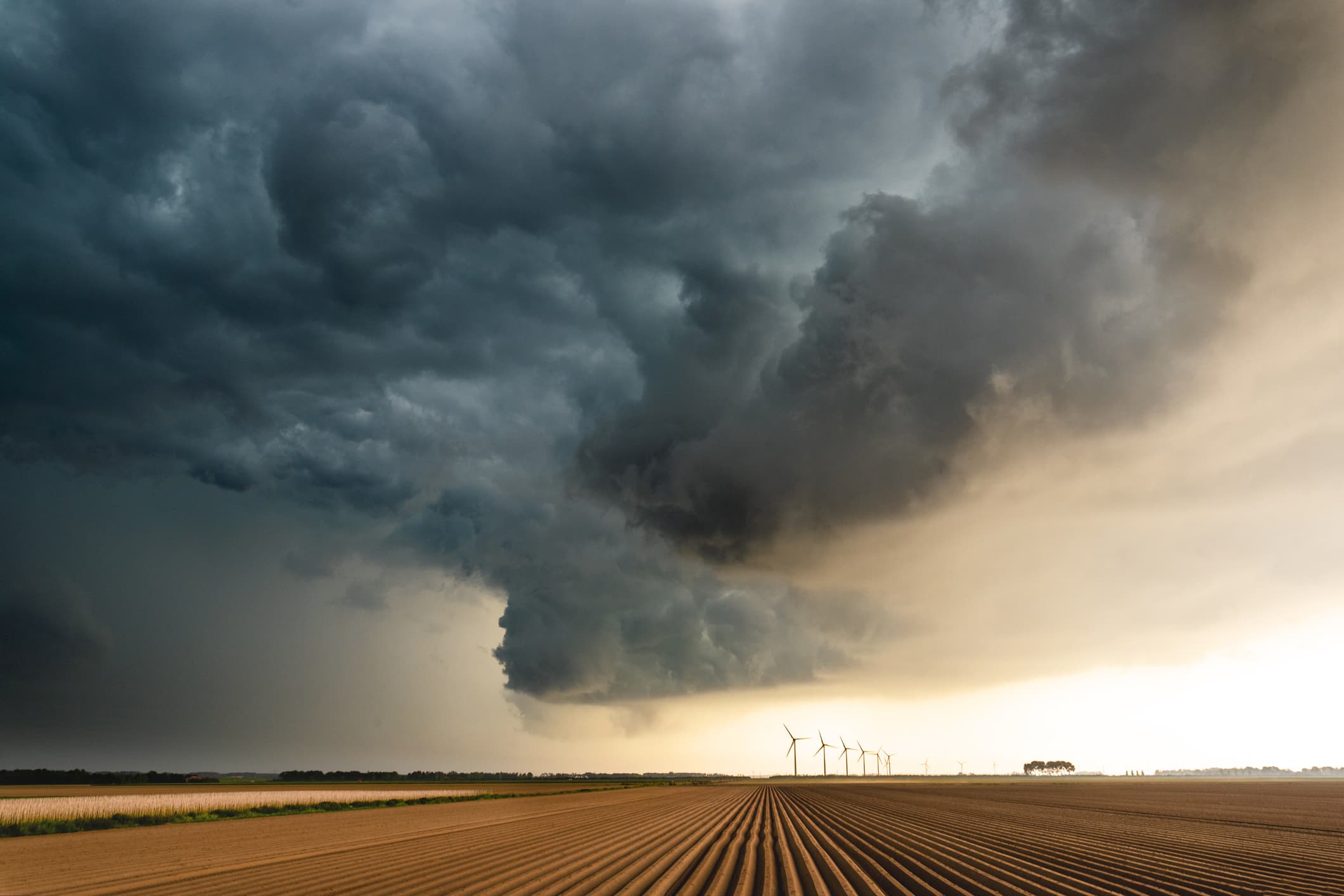Climate is the biggest single opportunity the insurance industry has ever seen CEO says

LONDON â€" Climate is the "ultimate systemic risk" and represents "the biggest single opportunity the insurance industry has ever seen," according to the CEO of the centuries-old insurance market Lloyd's.
In an interview with CNBC, John Neal, who heads up the British company, attempted to paint a picture of how his sector would operate going forward.
"We think of Covid as systemic risk â€" climate is the ultimate systemic risk, so this is our chance to show businesses, communities and even governments how we can help," Neal, who was speaking at the COP26 climate change conference in Glasgow, Scotland, said last week.
From floods and rising temperatures to cold snaps, the fallout from climate-related events already affects the insurance industry in a number of ways.
The Association of British Insurers says an extreme freeze in the U.K. during 2018 led to payouts for burst pipes totaling £194 million (around $263.16 million) across a period of three months. In the same year, an extreme heatwave saw over 10,000 homes in the U.K. claim for damage created by subsidence. This exceeded £64 million, according to the ABI.
More from CNBC Climate:Read more about how businesses and consumers are fighting and adapting to climate change:
Tom Steyer's life changed when he revisited an Alaska glacier and saw how much it had melted
Glacial lake outburst floods: How a lesser-known climate phenomenon threatens from above
Bill Gates doubts goal of limiting global warming to 1.5 degrees is achievable
Alongside payouts, the ABI points to another potential hurdle. "There is a risk that, if there is a disorderly transition to a low-carbon economy, the value of many of the assets in which insurers invest will fall with little warning," it says.
The ABI argues the above also represents an opportunity for companies that make an early shift to "more sustainable assets."
While there may be opportunities, there are also challenges, as highlighted by a wide-ranging report looking at climate change and insurance from Deloitte.
Preparedness, it would appear, is key. Among other things, the Deloitte report's executive summary describes many insurers as still having "some way to go in getting to grips with how climate change will affect their business models in the medium to long term."
Climate-focused litigation is another issues. Last week, a publication from the Insure Our Future campaign said insurers were "waking up to the growing risk that they may have to pay for the legal costs and damages of fossil fuel companies targeted by climate lawsuits."
ESG and turning the screwIdeas related to ESG â€" environmental, social and governance â€" have become a hot topic in recent years, with a wide range of companies attempting to boost their credentials by developing business practices that chime with ESG-linked criteria. The insurance sector is no different.
Speaking to CNBC's Steve Sedgwick at COP26 last week, Christian Mumenthaler, who is CEO of reinsurance firm Swiss Re, said: "In 2017, we switched the whole 100 billion asset base to ESG standards … we stay invested in every industry, but we pick only the 50% best in terms of ESG."
Read more about clean energy from CNBC ProThese electric-vehicle charging stocks are surging on the infrastructure bill
Cramer calls a 'Captain Obvious' rally in infrastructure stocks, says buyers beware
Bill Gates-backed battery company gets an outperform rating from Cowen
Mumenthaler was asked if this included coal. "It includes everything on the investment side," he replied. "There's certain things we have excluded, so if you're a pure coal company, that's excluded."
"But it's like turning the screw over time, because we say that the carbon emission footprint of this asset portfolio has to go down to zero by 2050," he added.
In relation to underwriting, Mumenthaler offered up the same idea of turning the screw. "We don't finance new coal power plants, we've told people we're going to phase out existing ones: 2030 in rich countries, 2040 in poor countries."
He emphasized the importance of creating a dialogue, of talking to CEOs in order to "encourage them to join the movement."
Data and the long gameBack at Lloyd's, Neal was asked about pricing climate risk when providing insurance and if the tools were available to do that. His response emphasized the importance of gathering knowledge over a sustained period of time.
"We've got 25 years of high quality weather data," he said. "The frequency and severity of … convective storms, right the way up to hurricane related activity we see in the U.S. â€" we've got amazing data on that," he went on to add.
"The advantage we have is unlike, say, life assurers where they're making long, long-term decisions, we are repricing our products every 12 months," he said.
"So in real time, we're managing weather and trying to understand weather and then trying to extrapolate that through a climate lens."
Looking ahead, Neal was bullish about his sector's prospects going forward. "The insurance industry's got $35 trillion under management, so we're part of the solution, if you like, of putting our assets at play to support transition," he said.
He concluded by saying: "I genuinely, genuinely think … climate is the biggest single opportunity the insurance industry has ever seen."

0 Response to "Climate is the biggest single opportunity the insurance industry has ever seen CEO says"
Post a Comment